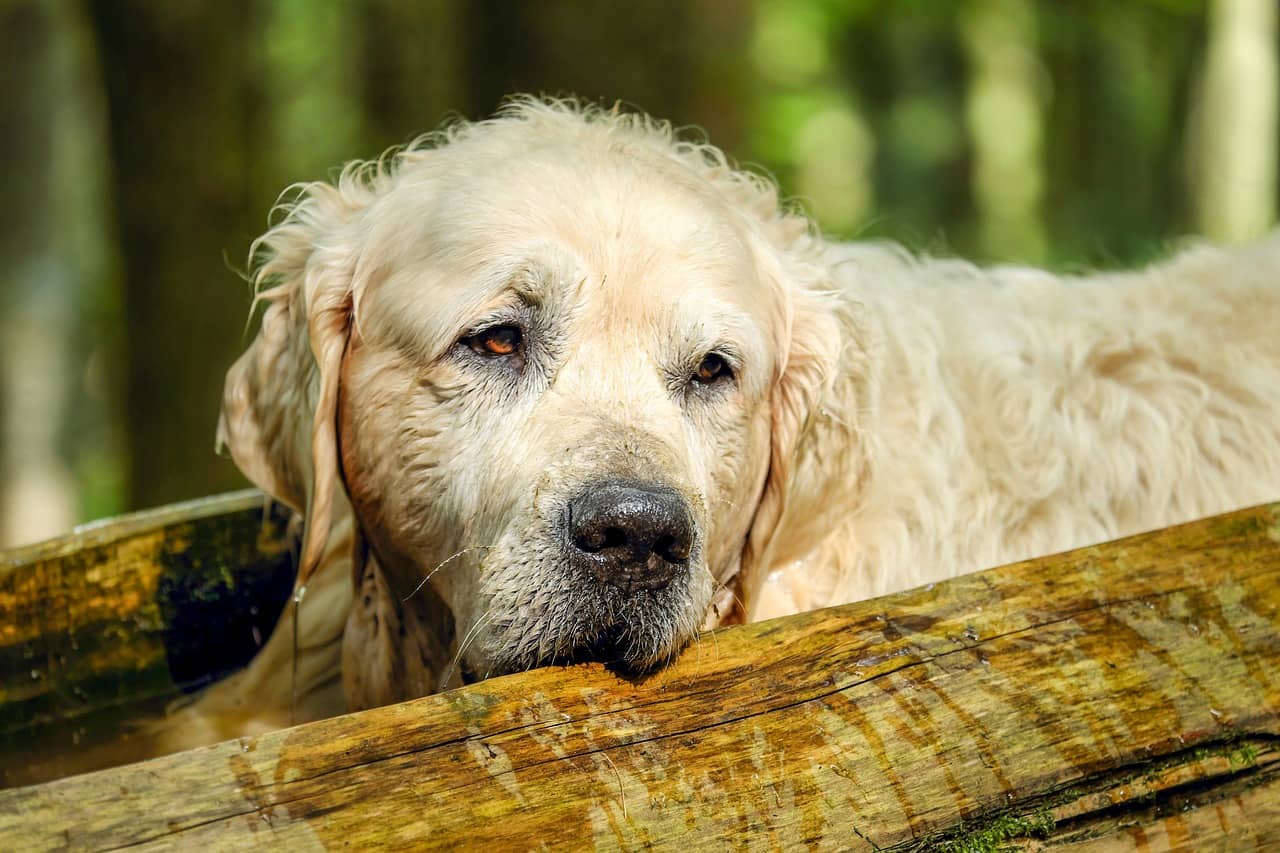
I was shocked to discover recently that pet food companies classify a dog aged seven years or over as a ‘senior’ dog. Two of my dogs (cockers) are aged 7 and 8, and I consider them in their prime. It is quite a sobering thought to consider that your dog is entering the ‘winter’ of his life and might not be around in four or five years, but with a bit of extra care and attention, you can make sure your dog’s ‘retirement years’ are plentiful, happy and healthy.
Table of Contents
Sight and hearing
Problem with eyesight is common in dogs well past middle age. Failing sight does not seem to bother dogs that much, provided you don’t keep moving the furniture, but failing hearing can be a problem, especially outdoors, where recall commands are so important. Some dogs bark more when their hearing becomes poorer.
One solution is to keep your dog a lot closer at all times, and in many cases, an elderly dog will become less inclined to forge ahead of you. Don’t be too quick to put a failed recall down to hearing. It is always worth doing a bit of extra recall training as many dogs get ‘sloppy’ on the memory in later years. Often because owners take them for granted and fail to reward the memory anymore.
Never assume changes are inevitable
Sometimes, the changes that come with age must be accepted, but sometimes, much can be done, and not all sight and hearing difficulties are untreatable. Cataracts can be removed, giving dogs a new lease of life, and in some cases, incontinence can be treated with medication. Chatting with your vet is always worth determining what can be done.
Supplements
While many supplements are more about making owners feel helpful than making dogs feel healthy, there is one that has been proven to improve mobility. Glucosamine is a popular food supplement for older dogs, and there is evidence that it genuinely delays the joint problems associated with old age. It is worth starting the supplements in middle age (and for you, too!), but you need to buy the ‘dog’ version as glucosamine is unsuitable for dogs.
Special food?
Senior dog foods are often designed for dogs with reduced calorie needs, but if your dog is working or exercised hard, he will probably benefit from staying on his current feeding regime. Some of the ‘light’ or ‘low calorie’ foods for older dogs are simply padded out with fillers, and your dog will do just as well with less of his usual food.
Maintaining a good weight
One of the best things you can do for your older dog is keep him slim. Any vet will tell you that most of the dogs they see are overweight. This significantly harms older dogs as it strains their joints and exacerbates problems such as arthritis. Keeping your dog slim can buy him months and even years of extra happy life.
Don’t forget, even if he is not as active as he used to be, there is no reason for him to get fat. You control the food; just give him less of it.
Exercising older dogs
Dogs will generally tell you when they want to ‘slow down.’ If your older dog finds an hour’s walk a bit much, cutting down a little is okay. Breaking his exercise into two or three smaller walks may be just what he needs.
Sudden changes
If a previously active or greedy dog suddenly starts to slow down or go off his food, don’t just put it down to old age. Sudden changes can be a warning that something is wrong. Many dogs give only very subtle signs of pain, and a trip to the vet may be in order.
Visible differences
It is curious how differently some dogs visibly age. My cockers have barely changed since they were puppies, and it is tough for anyone who does not know them to guess precisely how old they are. Apart from the tiniest hint of grey under the chin on my liver bitch, they look identical to how they looked five or six years ago.
On the other hand, my six-year-old lab is almost unrecognizable from photos of her aged two or three. Her fox red coat is ticked with silver hairs, and her face is almost white. And while she is still very fit, her premature greying makes her look like a little old lady.
Lifespan of different breeds
How long you can expect your dog to live depends on how healthy you keep him and his genes. Not only do some dogs show less apparent signs of aging, but there are also significant differences in lifespan between different breeds of dogs. A few dog species have a woefully short average lifespan, but most healthy and physically able dog breeds will live for ten to twelve years or more. Often a little less for giant breeds and a little more for smaller species.
However long your dog stays on earth, you will want to make the most of it and keep him as fit and healthy as possible for as long as possible. Regular vet checks, a healthy diet, and ensuring your dog stays slim and well-exercised are all part and parcel of ensuring your dog has a long and happy life.








Comments (4)
Jungsays:
21/08/2023 at 15:42Can cataracts in dogs be treated with medication?
Jennifer Barkersays:
21/08/2023 at 15:43I’ll research and write about it, stay tuned!
Jacksonsays:
31/08/2023 at 20:01Is there a specific supplement or brand of glucosamine that is recommended for older dogs?
Dakota321says:
07/03/2024 at 00:47What are the best ways to ensure a smooth transition for an elderly dog with failing eyesight and hearing?